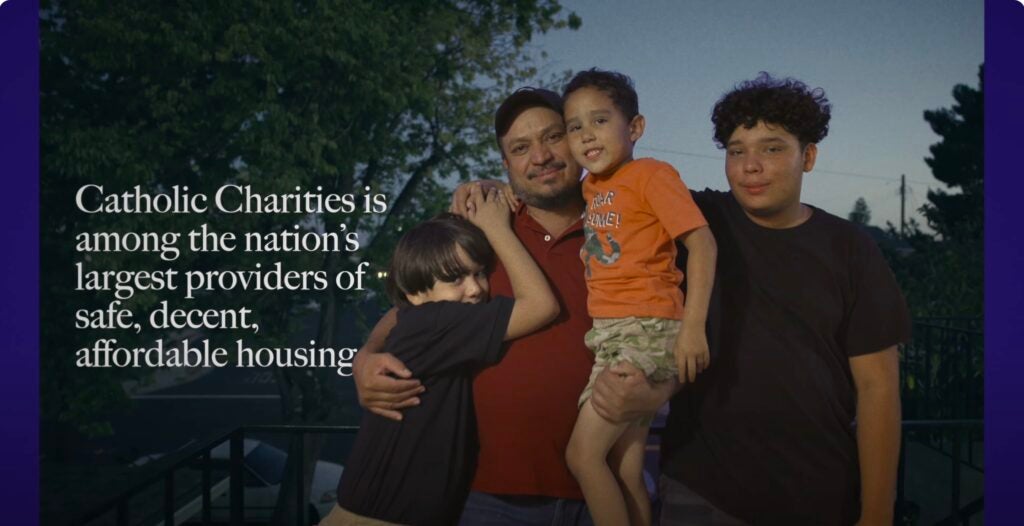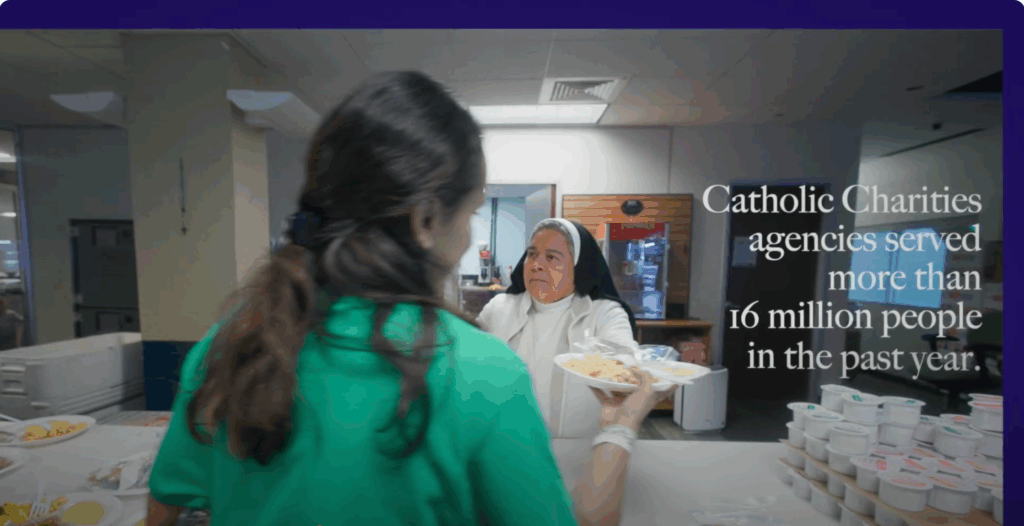
A decent home for all: CCUSA celebrates Fair Housing Act anniversary

As the nation celebrates the 50th anniversary of the Fair Housing Act, Catholic Charities USA (CCUSA) looks back on the many and varied ways the Catholic Charities ministry has served people’s housing needs.
Ever since 1910, when the ministry established its network of local agencies and national office – now known as CCUSA – housing has been a major issue. The Catholic community in the late nineteenth and early twentieth centuries experienced a massive influx of immigrants, and many of the newcomers were poor and in need of shelter. Catholic Charities was there on the local and national levels to help them.
Monsignor John O’Grady, the second president of CCUSA, made housing one of his chief priorities, a fact that was memorialized in a book celebrating the 100th anniversary of CCUSA:
“Catholic Charities USA and the Catholic Charities ministry in the United States has worked for fair and affordable housing for more than 100 years.” CCUSA has seen through its advocacy work and its experience at the local level that having a home means parents can maintain jobs, children can stay in the same schools, and the local economy is supported.
“Msgr. O’Grady…believed that providing a decent house was [essential] to helping people out of poverty. He helped to establish the first National Public Housing Conference in 1931, which helped to pass the National Housing Act of 1934. This act created the Federal Housing Administration and made housing and home mortgages more affordable. For more than a decade after, O’Grady worked tirelessly with Senator [Robert] Wagner to ensure that legislation to provide for low-income housing was eventually enacted. In the 1930s and 1940s, several pieces of housing legislation passed, culminating in the Housing Act of 1949, a landmark law that provided for massive slum clearance projects and money to construct more than 800,000 public housing units by 1955.” (1.)
One of the stated goals of the 1949 Housing Act was “a decent home and a suitable living environment for every American family.” (2.) While this has yet to be achieved, Catholic Charities has never ceased to work toward its realization, continuing to partner with public and private organizations during the second part of the twentieth century and to the present moment.
CCUSA has seen through its advocacy work and its experience at the local level that having a home means parents can maintain jobs, children can stay in the same schools, and the local economy is supported. To achieve these benefits, three main elements are needed for any action:
1. an entire community – including national and local government institutions, private organizations, churches, and individuals – that is involved in, and passionate about, the effort to bring housing to all its citizens;
2. the removal of negative influences such as unequal access to affordable housing and discriminatory and/or predatory practices in home lending;
3. and the implementation of positive policies that support homeownership including a living wage, inclusionary zoning (i.e., a percentage of affordable housing units built along with market rate units), and financial incentives of various kinds.
The Catholic Charities ministry is fully engaged in the effort to make affordable housing a reality for all people in the U.S. In July 2016, CCUSA convened member agencies to discuss how the Catholic Charities ministry could fulfill the goal of a decent home for every family. Participants explored ways housing information and expertise could be shared across the network to promote a united approach. (Read more about CCUSA’s Healthy Housing Initiative.)
CCUSA and local agencies also made housing one of seven strategic priorities to focus on, with a particular goal of developing and implementing by 2022 a national strategy to finance renovations of existing properties, new construction of shelters, and temporary and permanent housing for vulnerable persons.
Catholic Charities agencies and affiliates offer an array of housing products and services, including transitional housing and shelter services, permanent housing, and supervised living services. Permanent housing units target underserved populations: low income families, people with physical challenges, senior citizens, farmworkers, pregnant women, veterans, etc. In addition to providing actual shelter, Catholic Charities agencies also have an array of related services that help people achieve homeownership, such as housing counseling (50 agencies), case management (83 agencies) and foreclosure counseling (26 agencies). Housing services also include limited emergency rental and security deposit assistance designed to prevent homelessness and eviction.
1. DeBlasio, Donna M. and Ruth Lilijenquist, Eds. Catholic Charities USA: A Century of Service, Advocacy, and Convening. (Alexandria VA: Catholic Charities USA, 2010): 51.
2. Housing Act of 1949, S. 99, 81st Cong. (1949): 1.








